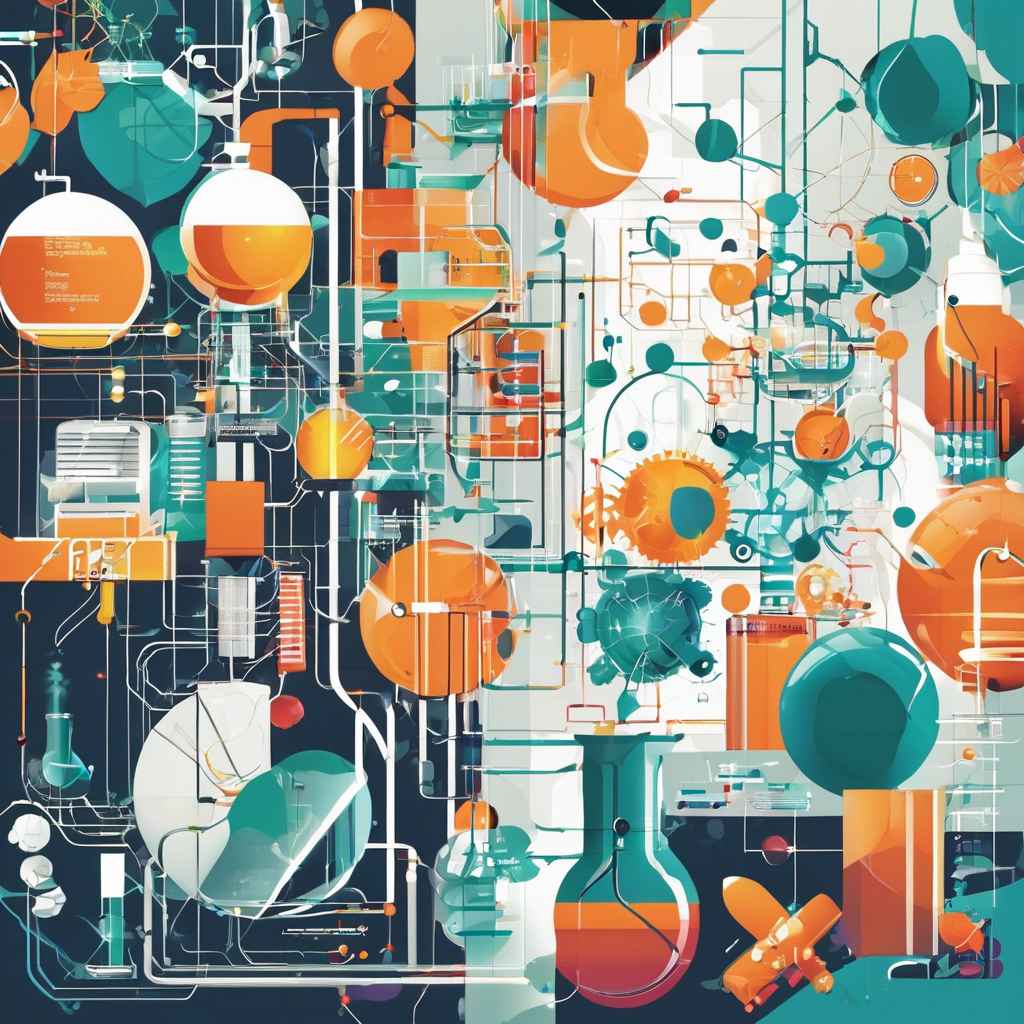Biotechnology and Business have become intricately intertwined in today’s global economy, revolutionizing industries and driving innovation across various sectors. The marriage of biological sciences with business strategies has opened up a world of possibilities, from developing new medicines to enhancing crop yields and creating sustainable solutions for environmental challenges. In this article, we will delve into the intersection of biotechnology and business, exploring how these two fields collaborate to shape the future of technology, healthcare, agriculture, and beyond.
Biotechnology plays a crucial role in advancing the field of medicine, with groundbreaking discoveries leading to the development of life-saving drugs and therapies. Biotech companies leverage cutting-edge technologies to research and produce pharmaceuticals that target specific diseases and improve patient outcomes. Through genetic engineering and bioprocessing techniques, businesses in the biotech sector are able to create personalized treatments tailored to individual genetic profiles, paving the way for precision medicine and personalized healthcare.
The impact of biotechnology extends beyond healthcare and into agriculture, where innovative practices are revolutionizing food production and sustainability. Biotech firms are at the forefront of developing genetically modified crops that resist pests, diseases, and environmental stressors, leading to higher yields and more resilient food systems. By harnessing biotechnological tools such as CRISPR gene editing and bioinformatics, businesses can address global challenges such as food security, climate change, and resource scarcity, ushering in a new era of sustainable agriculture.
In the realm of renewable energy, biotechnology is driving advancements in biofuels, bioplastics, and other eco-friendly alternatives to traditional fossil fuels. By utilizing biological processes and organisms to convert biomass into energy, biotech companies are reducing dependence on non-renewable resources and mitigating the environmental impact of energy production. Through bioengineering and metabolic engineering, businesses are able to optimize microbial systems for efficient biofuel production, offering a greener and more sustainable energy solution for the future.
The convergence of biotechnology and business has also given rise to the field of synthetic biology, where organisms are engineered to perform specific functions for industrial applications. From bio-based materials to biomanufacturing processes, synthetic biology offers a platform for creating novel products and processes that are environmentally friendly and economically viable. By designing biological systems for industrial use, companies can unlock new opportunities for sustainable production and resource utilization, driving economic growth and innovation.
In the realm of personalized nutrition, biotechnology is enabling the development of functional foods and dietary supplements tailored to individual health needs. By leveraging genetic insights and biometric data, businesses can create personalized nutrition plans that optimize health and wellness outcomes for consumers. Through nutrigenomics and microbiome analysis, companies are able to develop customized food products that support gut health, metabolic function, and overall well-being, catering to the growing demand for personalized dietary solutions in the market.
The integration of biotechnology and artificial intelligence is revolutionizing data analytics and decision-making processes in various industries. By combining biological data with AI algorithms, businesses can gain valuable insights into complex biological systems and accelerate the discovery of new drugs, therapies, and biotechnological solutions. Machine learning and deep learning algorithms are being used to analyze genetic data, predict protein structures, and optimize bioprocesses, empowering companies to make data-driven decisions that drive innovation and competitiveness in the market.
The adoption of bioinformatics tools and computational biology has transformed the way biotech companies analyze, interpret, and manipulate biological data for research and development purposes. By leveraging big data analytics and cloud computing, businesses can process vast amounts of genomic information, identify patterns, and extract meaningful insights that inform drug discovery, personalized medicine, and agricultural biotechnology. Bioinformatics algorithms are instrumental in predicting genetic variations, modeling protein interactions, and designing novel enzymes, offering a powerful toolkit for accelerating innovation and scientific discovery in biotechnology.
The regulatory landscape surrounding biotechnology and business is complex and ever-evolving, with stringent guidelines in place to ensure the safety, efficacy, and ethical use of biotechnological products and processes. Regulatory bodies such as the FDA and USDA play a crucial role in evaluating and approving biopharmaceuticals, genetically modified organisms, and other biotech products for commercialization. Businesses in the biotechnology sector must adhere to strict regulatory standards, conduct rigorous testing and clinical trials, and demonstrate compliance with ethical and environmental guidelines to bring their products to market and gain consumer trust.
The intersection of biotechnology and business presents unique challenges and opportunities for entrepreneurs, investors, and stakeholders navigating the dynamic landscape of the biotech industry. From securing funding for research and development to navigating intellectual property rights and market dynamics, businesses must navigate a complex ecosystem of regulations, competition, and technological advancements to succeed in the biotech marketplace. Collaboration with academic institutions, research organizations, and industry partners is essential for driving innovation, fostering talent, and bringing cutting-edge biotechnological solutions to market.
In conclusion, the fusion of biotechnology and business is reshaping industries, driving innovation, and creating new opportunities for economic growth and societal impact. From personalized medicine to sustainable agriculture, renewable energy, and synthetic biology, the synergy between biological sciences and business strategies is propelling us towards a future where technology, healthcare, and sustainability converge to address global challenges and improve lives. As businesses continue to harness the power of biotechnology to innovate and create value, the possibilities for transformative change are endless, paving the way for a brighter and more sustainable future for generations to come.
The evolving landscape of biotechnology and business presents a myriad of opportunities for collaboration, investment, and impact across diverse sectors, from healthcare and agriculture to energy and manufacturing. As businesses and policymakers navigate the complexities of the biotech industry, it is essential to prioritize ethical considerations, environmental sustainability, and societal well-being in the development and commercialization of biotechnological products and solutions. By fostering a culture of innovation, collaboration, and responsible stewardship, we can harness the power of biotechnology to address pressing global challenges, drive economic growth, and improve the quality of life for people around the world.
